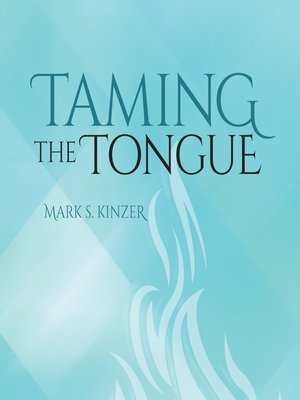
Sign up to save your library
With an OverDrive account, you can save your favorite libraries for at-a-glance information about availability. Find out more about OverDrive accounts.
Find this title in Libby, the library reading app by OverDrive.



Search for a digital library with this title
Title found at these libraries:
| Library Name | Distance |
|---|---|
| Loading... |
The Epistle of James says that anyone who considers him or herself to be religious yet does not tame his tongue is self-deceived. James says that such a person's religion is worthless. On the other hand, James refers to the person who tames his or her tongue as a "perfect" person. That's a stark contrast. There's a big difference between being a self-deceived person engaging in worthless religious practice and being "perfect" or "complete." If we take these words of the Bible seriously, we need to start taking our own words far more seriously then we normally do. Words of blessing and cursing in Scripture do not merely express benevolent hopes or malevolent wishes; instead, they actually accomplish and ensure the very reward, good or evil, which they promise. Taming the tongue is one of the major concerns in Jewish teachings about ethical conduct (mussar). Jewish law strictly forbids gossip, slander, deprecating language, and all types of derogatory remarks. This book, Taming the Tongue, adds to Judaism's ongoing conversation about the laws and principles of proper speech from a slightly different angle. This book contributes to the conversation from a Messianic Jewish perspective, bringing to bear the powerful teachings of Yeshua and the apostles.







